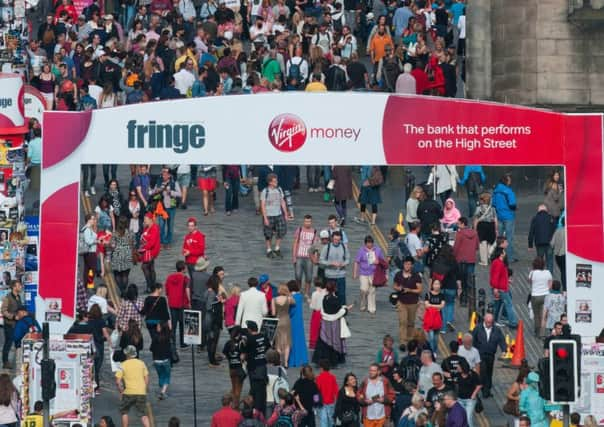Leader comment: Diversity is no laughing matter for Fringe's future


Look more closely and it becomes apparent that the majority of this promotion is for comedy shows. And if you miss the posters, the flyers will be pushed into your hand.
Comedy is ubiquitous, and now the chief executive of the Fringe Society, Shona McCarthy, who took over last year, says we need to redress the balance.
Advertisement
Hide AdAdvertisement
Hide AdLike an invasive Japanese knotweed, comedy grabs much of the nutrition and most of the sunlight at the Fringe – starving other less popular endeavours. Indeed, as McCarthy says, many people think of the Fringe solely as a comedy festival, when in fact 65 per cent of the 3,398 shows are not.
The fear is that, without a rebalance, theatre, dance, music, cabaret and other areas will be starved of attention and wither in the longer term; or become a far smaller part of the programme.
This is not a new debate. The predominance of comedy has been debated for the past 15 years.
The diversity of the Fringe is its strength. The huge variety of venues, the international nature of the shows, and the sheer inventiveness which constantly surprises.
No-one wants to replace this with a bland series of stand-up comedians parroting similarly rude jokes about this year’s Donald Trump or Theresa May. If that happens the Fringe will truly hear Thundering Hooves.
But what levers can the Fringe Society actually pull here? We should remember that it does not control venues or shows, but helps organise the event into something coherent and manageable.
The artistic control lies elsewhere and if the public wants comedy, this is what the venues will provide.
Advertisement
Hide AdAdvertisement
Hide AdThrough its website, social media channels and its physical programme, the Fringe could accentuate the diversity on offer. And of course, it could encourage venues to think differently about the shows it could produce.
But the options are somewhat limited, unlike the International Festival which is planned by its artistic director.
There is also the issue that comedy underwrites a lot of theatre. Many of the so-called “big four” venues – Assembly, Gilded Balloon, Pleasance and Underbelly – host non-comedy shows knowing that the profits from comedy ensures the diversity of production. A “re-balancing” could have unintended consequences.
And, as Nica Burns argued in The Scotsman earlier this week, we must be careful not to see comedy as an inferior art form. Stand-up is tough work, and does tackle serious issues.
Further, many big names such as Emma Thompson, Tim Minchin, Eddie Izzard and David Walliams appeared in Fringe comedy as relative unknowns but have gone on to successful screen careers. We should celebrate this.
Notwithstanding this, Shona McCarthy is right. Comedy is all-powerful during August in Edinburgh. And the Fringe needs to be more than one art form.
All of us who have a stake in the future of this great festival should ensure we highlight and promote its diversity. By doing this we will have the best comedy to thrive alongside the best of dance, theatre, cabaret, circus, events, opera, children’s shows and the like.